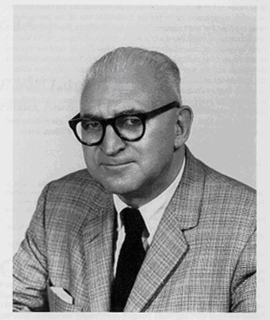A Quote by Bertrand Russell
When two great powers disagree about anything - it doesn't matter what - they must find a way to settle it somehow by arbitration or by negotiation, not by war or threat of war.
Related Quotes
Unconditional war can no longer lead to unconditional victory. It can no longer serve to settle disputes. It can no longer concern the Great Powers alone. For a nuclear disaster, spread by wind and water and fear, could well engulf the great and the small, the rich and the poor, the committed and the uncommitted alike. Mankind must put an end to war--or war will put an end to mankind.
Particularly when the war power is invoked to do things to the liberties of people, or to their property or economy that only indirectly affect conduct of the war and do not relate to the engagement of the war itself, the constitutional basis should be scrutinized with care. ... I would not be willing to hold that war powers may be indefinitely prolonged merely by keeping legally alive a state of war that had in fact ended. I cannot accept the argument that war powers last as long as the effects and consequences of war for if so they are permanent -- as permanent as the war debts.
So great are the psychological resistances to war in modern nations, that every war must appear to be a war of defence against a menacing, murderous aggressor. There must be no ambiguity about whom the public is to hate. Guilt and guilelessness must be assessed geographically and all the guilt must be on the other side of the frontier.
A great many of the epic fantasies, from The Lord of the Rings onward, are about war, but to my mind, a lot of it doesn't really deal honestly with the consequences of war, what war does to us, as a society, what war does to us, as individuals, and the struggle for power, in the same way, and what we're fighting for.
World War Two was a world war in space. It spread from Europe to Japan, to the Soviet Union, etc. World War Two was quite different from World War One which was geographically limited to Europe. But in the case of the Gulf War, we are dealing with a war which is extremely local in space, but global in time, since it is the first 'live' war.
An aggressive war is the great crime against everything good in the world. A defensive war, which must necessarily turn to aggressive at the earliest moment, is the necessary great counter-crime. But never think that war, no matter how necessary, nor how justified, is not a crime. Ask the infantry and ask the dead.
I voted against the war in Iraq. I voted against the first Gulf War. I think war is the last resort - the last option of a great military power like us. I think that we need to focus on building coalitions. Yes, ISIS must be destroyed. But it should be destroyed by a coalition of Muslim nations on the ground with the support of the United States and the other major powers in the air and in training the troops there.



































